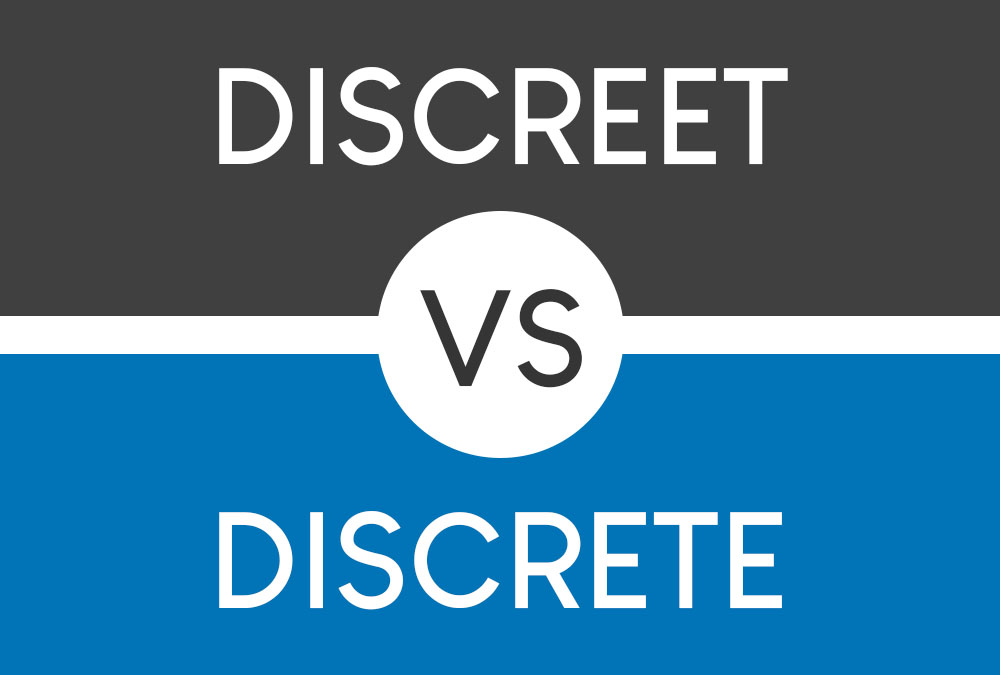Homophones can be very tricky at times. When you say it out loud or hear it in your head, there’s no problem. But when you need to write it down, suddenly you don’t know which word you actually mean. Don’t worry. It happens to the best of us. Interchanging these words is, unfortunately, a common occurrence. One of the common homophones that people get confused with is discreet vs discrete. It’s not all that surprising since typographically, the difference is just the placement of the letter T. But with the help of this little guide, you’ll be able to pick the correct word every time.
Discreet
This word describes something that is lowkey or not likely to be noticed. Think of it as being the opposite of obvious or sticking out like a sore thumb. It refers to being subtle and it gives an impression of vagueness or secrecy. It is an adjective, but also has an adverb counterpart, discreetly.
Examples
- The two friends had to be discreet when passing each other notes in class so their teacher wouldn’t find out.
- The smile on her face when our hands accidentally touched was discreet, but I definitely saw it.
- My teammate gave me a discreet gesture to signal that she had four matching cards in her hand.
- The wolf approached his prey discreetly so it could catch it by surprise.
- He discreetly slipped the toy cockroach under his friend’s desk as a prank.
Discrete
Discrete, on the other hand, describes things that are separate or different. You can often hear this word in mathematics or statistics to describe variables or probability distributions. In mathematics, it refers to values that are finite and countable.
Examples
- A discrete random variable is one that can take on a countable value, while a continuous random variable’s value is obtained through measurement.
- That incident was a discrete occurrence and not a recurring problem.
- We’re going to divide the team into two discrete groups that will be focusing on different areas of the project.
- Our branch operates discretely from the others.
- The members of the group shouldn’t work on the paper discretely or else the output won’t be cohesive.
Discreet vs Discrete
Even if you know that one word means subtle and the other means separate, it can still be confusing trying to remember which is which. However, there’s an easy trick that will help you assign the right word to its meaning.
When you’re thinking of lowkey, remember the low E’s (ee). And if you want to divide, the T separates the E’s. Have that in mind and you’ll never have to worry about using the wrong word. And if you accidentally interchange the two, then be discreet about it and think of it as a discrete event you won’t repeat.

